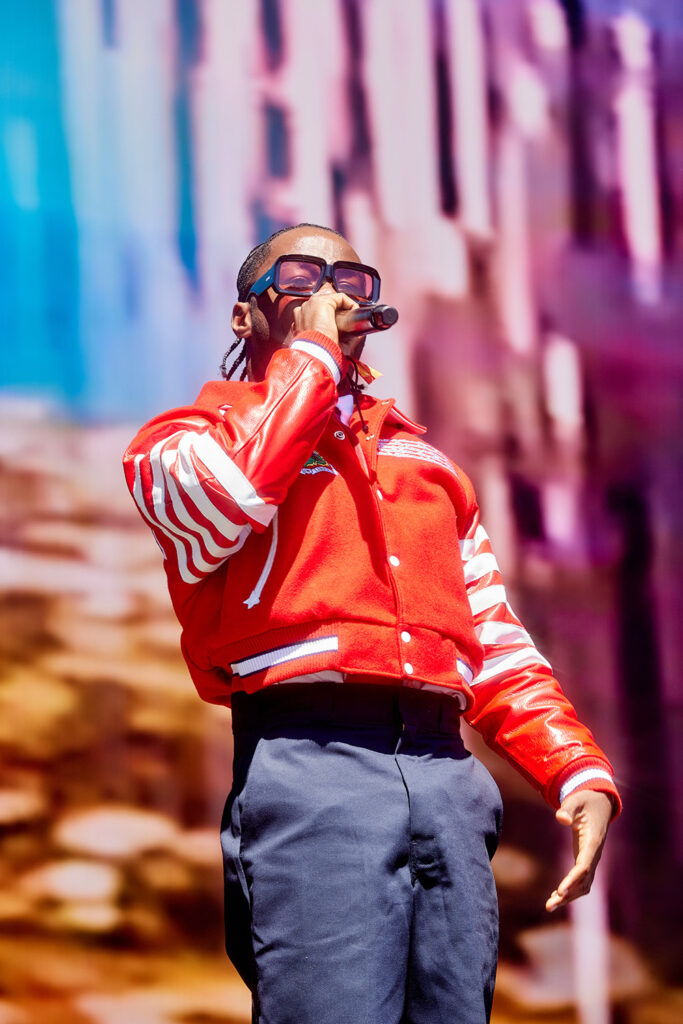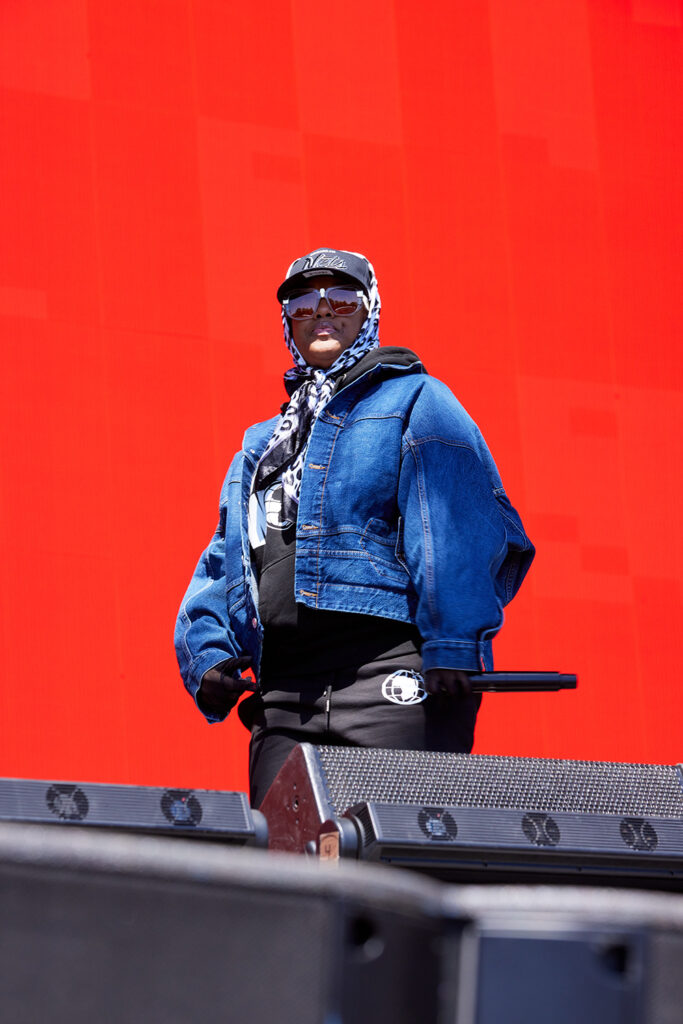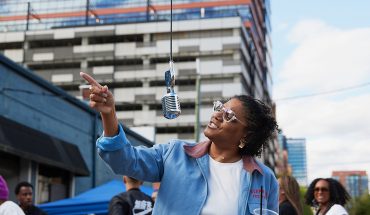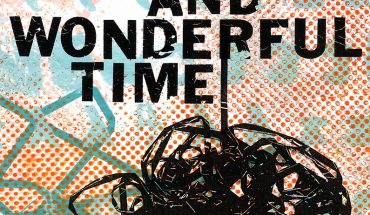In the third year of J. Cole’s immersive music festival, performers reflect on the unique perspective that North Carolina brings to hip hop.
by Courtney Napier | photography by Samantha Everette
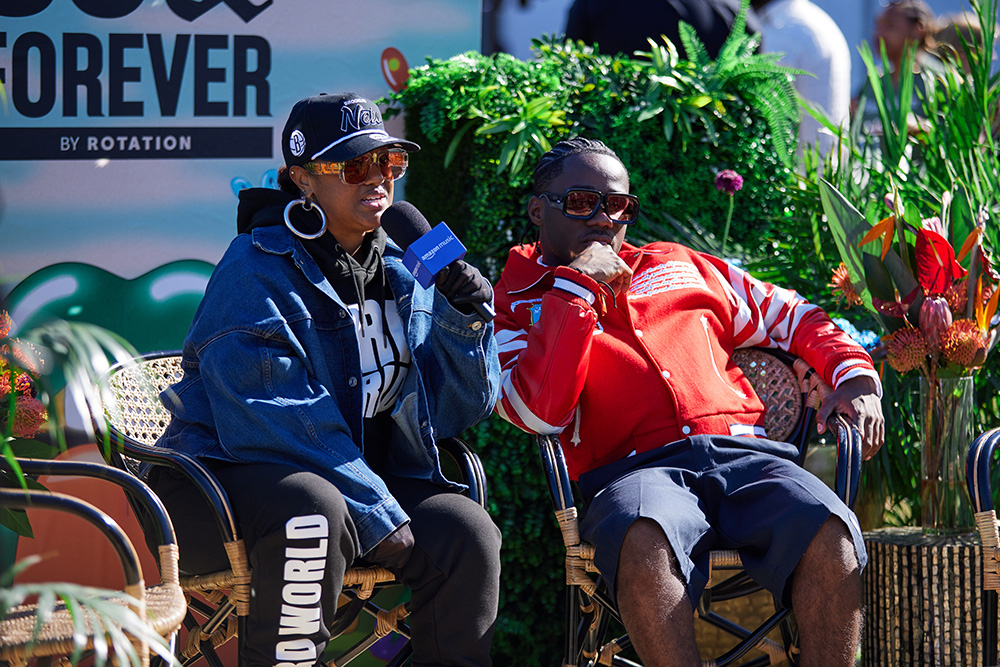
When iconic Atlanta-based rap duo, Outkast, won best new rap group at the 1995 Source Awards, it was seen as a major upset. As the audience booed, an unflinching Andre 3000 and Big Boi accepted their award and declared, “The South got something to say!”
At Dreamville Music Festival — where staging and lights stretched towards a cloudless blue sky and miles of black cables wove across the ground — that legendary moment in hip-hop history came to mind. The two-day concert held at Raleigh’s Dorothea Dix Park just turned three, and 50,000 fans showed up each day to celebrate.
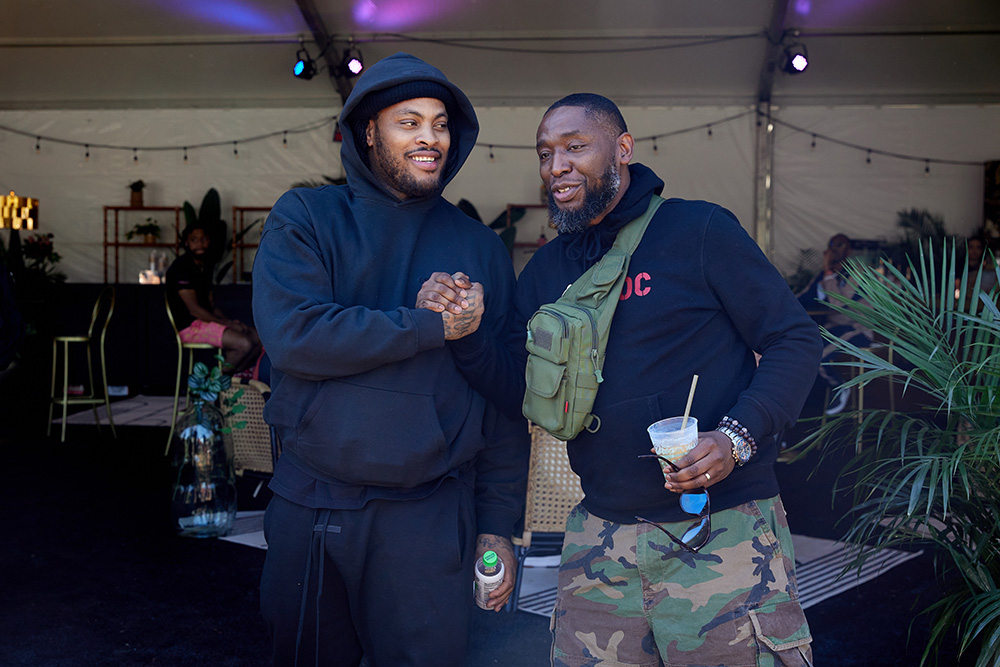
Backstage, hip hop’s biggest stars, their entourages and the press mixed and mingled under the Carolina sun like a scene from a family cookout. Hip hop producer and Duke professor, 9th Wonder, sat in a sling patio chair under an umbrella with a frosty drink in his hand surrounded by acolytes and admirers.
“You know when I first started,” Winston-Salem-raised 9th Wonder explained after I pulled up a chair beside him and photographer, Samantha Everette, “hip-hop festivals were in their infantile stages. Back then, there was no social media, no followers or profiles.
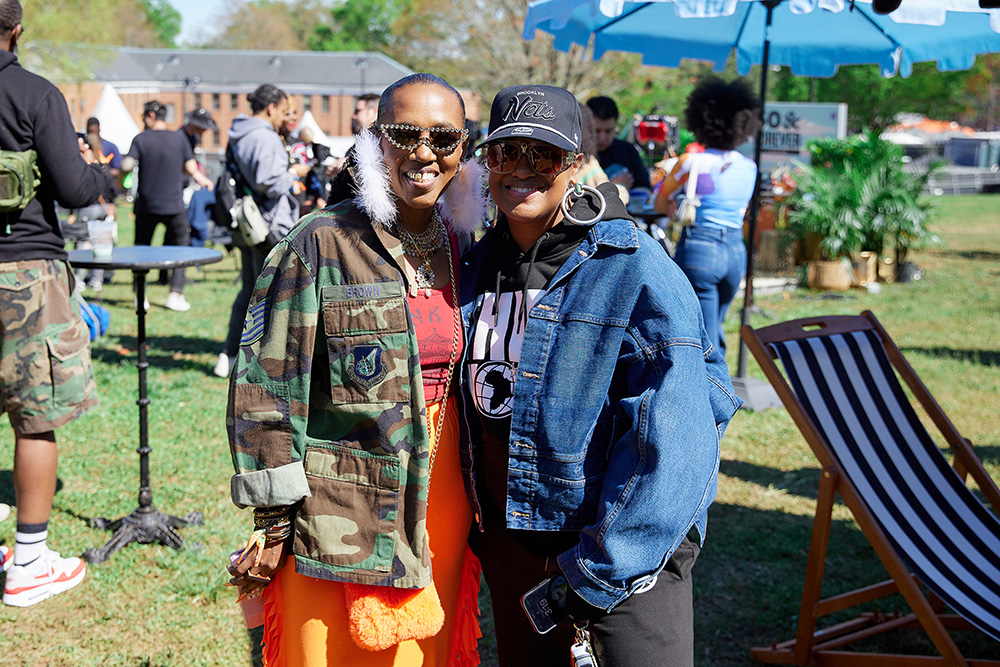
Dreamville is the result of a great Zeitgeist — the meeting of an established hip-hop industry and the power of social media.” Unlike media capitals like New York and Los Angeles, North Carolina needed the infrastructure of the internet to bring its special brand of hip-hop to the rest of the country and beyond.
One could also argue that it needed a maverick creative like J.Cole. Raised in Fayetteville, he used the power of the internet to sell his mixtapes before he became the first artist signed to Jay Z’s Roc Nation entertainment agency.
In 2013, J.Cole created the “Dollar & A Dream” Tour, which ran for three years using social media to announce a tour stop just days before each show. In 2014, J.Cole brought Dollar & A Dream to Raleigh, despite his management putting up a fight. From this acorn, the oak tree of Dreamville grew.
9th Wonder had two artists on the bill at Dreamville under his label, Jamla Records, Grammy-nominated Rapsody (who started rapping as a student at NC State), and newcomer Reuben Vincent. Vincent, from Charlotte, sat down with us backstage and talked to us about his Dreamville debut.
“Coming after legends like [9th Wonder and J.Cole] in North Carolina,” he explained, “it’s a new generation. It’s our time to take it to another level. We love what they created for us, and excelling is how we show our gratitude.” Vincent’s grounded and gratitude-filled approach to hip-hop is not exclusive to North Carolina, but it is certainly central to its culture.
“The thing about what’s happening to hip-hop in North Carolina is that artists are finding success without sacrificing their quality of life,” 9th Wonder explained when asked about how the Tarheel State is impacting hip-hop on an industry level. “You can see J.Cole at Walmart! I go to the mall by myself all the time! You can’t live like that anywhere else as a hip-hop artist.”
With this perspective in mind, it is an advantage to not be a “media town,” because it allows artists to live a more normal, wholesome life.
Finally, J. Cole’s vision does not stop at the recording artists: he wants the festival to have an impact here on Raleigh’s economy even after the weekend’s over. From launching the festival at CAM Raleigh to creating the Dreamville Buyer’s Guide featuring Black businesses throughout Raleigh to featuring local vendors at every level of the festival. The floral arrangements on display around the backstage tent were designed by co-host of HBO’s Full Bloom and creator of Bloom and Plume, Maurice Harris, and Youngsville native, Syntina Nesbitt.
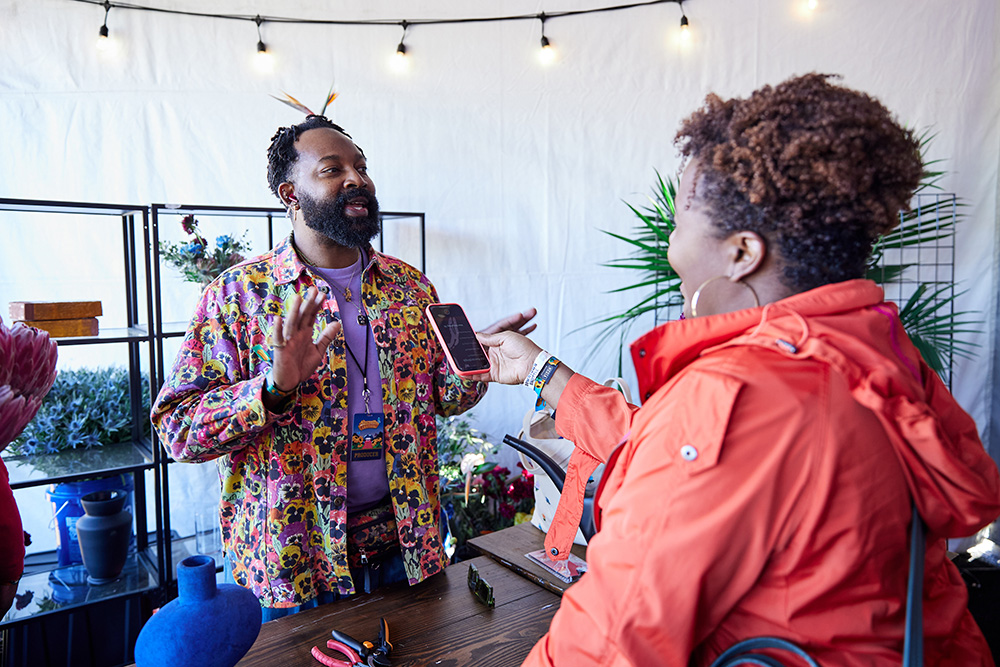
Along with working with a celebrity florist and designer, Nesbitt designed a special centerpiece for one of her favorite artists, Drake. “I was so excited to get this opportunity!” Nesbitt explained.
“I’m a first generation everything in my family, so me being here right now is so impactful.” Nesbitt hopes other makers in Raleigh and throughout the state are inspired by her story. “When you really focus on your craft and channel that inner-J.Cole — someone who can create, produce, and execute quality work — you can attract the opportunities of your dreams.”
As the saying goes, “Raleigh is not new to this, Raleigh this true to this,” which means that Raleigh’s hip-hop scene is an established and thriving culture that has finally started receiving its flowers.
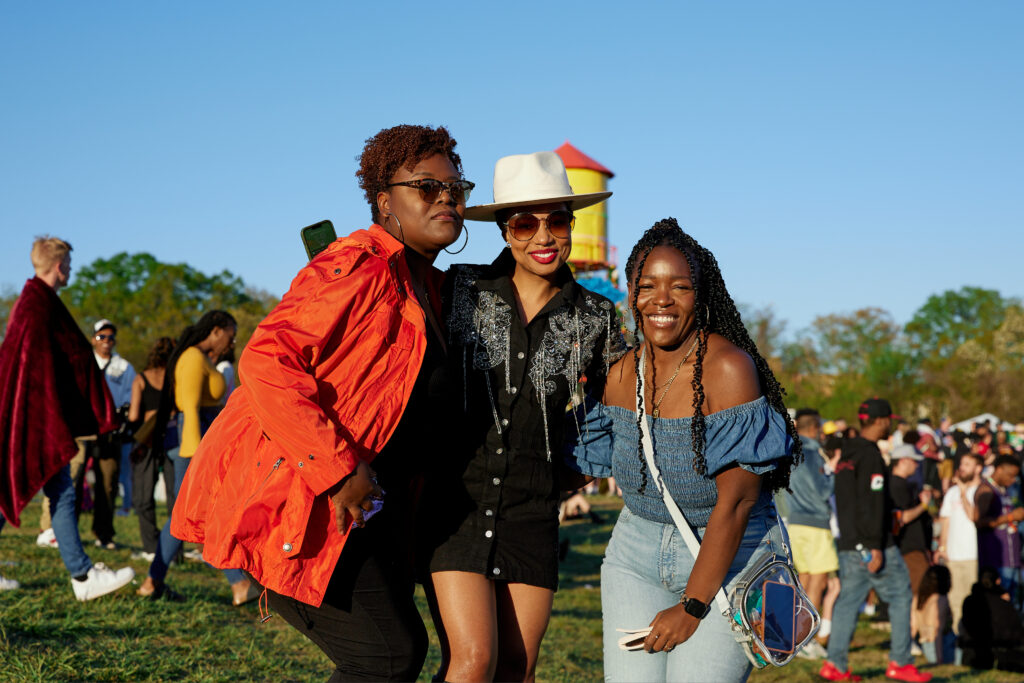
This article was originally published in April 2023 on waltermagazine.com

